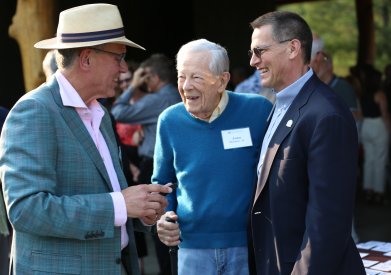Choosing Wisely®: A Stunning Moment
January 6, 2014
Every time I am invited to speak about the Choosing Wisely campaign, I ask the audience to raise their hands if they have witnessed or heard of unnecessary care delivered to patients, themselves and/or their family members. Usually, about three-quarters of them raise their hands. I then ask if they have witnessed or heard of cases where someone was harmed by unnecessary care and about a quarter still have their hands raised. Why do we hear more stories on misdiagnosis as a result of tests that were not ordered and not the stories where unnecessary tests caused harm? Sharing such anecdotes is an important component of increasing awareness of wasteful tests and procedures.
I recently spoke at the Institute for Healthcare Improvement (IHI) Forum 25th anniversary along with Shannon Brownlee and Vikas Saini from the Right Care Alliance.
As I usually do, I asked the 1,000 or so audience members to stand if they had witnessed waste and unnecessary care. Practically all stood up. When I then asked them to remain standing if they knew people who had been harmed by unnecessary care, almost all of them remained standing. I was stunned.
This moment still resonates with me, weeks later. To think that these people, all of whom were at the meeting because they are interested in quality and safety, have seen harm done by unnecessary testing makes me angry about the prevalence of this problem and hopeful that the Choosing Wisely campaign can help eliminate this harm.
The one thing I’ve taken away from this experience is that waste is silent. It isn’t part of the collective consciousness and doesn’t usually attract the attention of practicing physicians and other clinicians. Quality improvement experts, such as the IHI Forum attendees, examine performance data, safety and error reports, and quality information. They are more aware of that waste than most people: it’s their job to reveal that waste to other physicians and awaken them to the potential harm of wasteful tests and procedures. It’s our job to continue talking about it.

Daniel B. Wolfson
EVP and COO, ABIM Foundation



